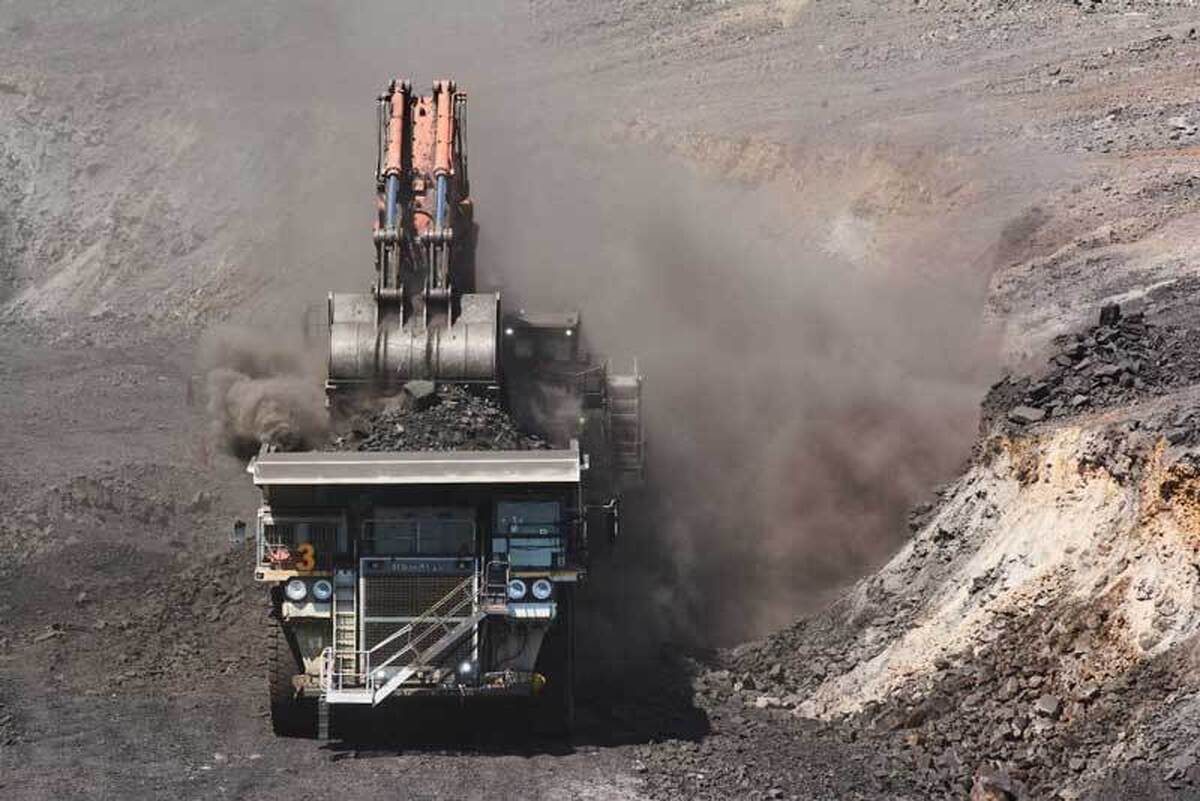
1 Billion Tons Added to Iran’s Iron Ore Reserves in Six Years
EghtesadOnline: About 1 billion tons of new iron ore reserves have been identified in Iran over the past six years, the Iranian Mines and Mining Industries Development and Renovation Organization reported.
The share of new discoveries from total reserves is 33%, IMIDRO’s Public Relations Department reported.
Iran’s total iron ore reserves currently stand at 2.74 billion tons.
The report added that explorations for more reserves are currently underway in 30 provinces, including 107 zones spread over 660,000 square kilometers.
IMIDRO estimates that iron ore reserves will increase by 2 billion tons by the fiscal 2041-42.
Two iron ore processing units, namely Sangan Iron Ore Concentrate Plant and Sanabad Pellet Plant both located in the city of Sangan in Khaf County of northeastern Khorasan Razavi Province, were inaugurated last year, by President Hassan Rouhani via videoconferencing.
The first phase of Sangan Mineral and Industrial Company’s Sangan Concentrate Plant has a production capacity of 5 million tons of iron ore concentrates per year. This plant has created 500 direct jobs.
As the managing director of Sangan Mineral and Industrial Company, also known as SIMIDCO, Ali Emraei told ILNA 38 trillion rials ($158 million) have been invested in this project.
Sanabad Tose'e Faragir Industrial and Mineral Company’s Pellet Plant has an annual production capacity of 2.5 million tons, Mehr News Agency reported.
Developed by National Development Industrial and Mineral Company, 13 trillion rials ($54 million) were invested in this project to create 200 direct jobs.
The two projects were inaugurated via videoconference at the site of Sanabad Tose'e Faragir Industrial and Mineral Company.
"The development and inauguration of projects across the country are still continuing despite harsh sanctions and pressure on Iranian economy," President Rouhani said during the inauguration ceremony.
“Iran has been reducing exports of iron ore in the past years in line with the plans to curb the export of unprocessed minerals and encourage the mining industry to create added value in production,” former deputy industries minister, Dariush Esmaeili, said last year, IRIB News reported.
“Some six million tons of iron ore were exported in fiscal 2019-20, which constituted a meagre 6.7% share of the country’s 90-million-ton annual output,” he said.
The country exported less than 500,000 tons of iron ore during the first quarter of last Iranian year (March 20-June 20, 2020), he added.
IMIDRO’s data show that a total of 17 million tons of iron ore were exported from Iran in the fiscal 2018-19.
According to Esmaeili, Iran’s iron ore exports stood at 20 million tons per annum about a decade ago.
In a bid to prevent the exports of unprocessed minerals and meeting the requirements of domestic producers for raw materials, Iran has levied 20-25% duty on the exports of raw minerals since Sept. 23, 2019.
Iron ore has been at the forefront of the new restrictive measure, as experts warn Iran will face a shortage of iron ore to feed its steel industries in the near future.
Exports of iron ore concentrates and pellets have seen 25% duties.
Growth in Concentrate, Pellet, DRI Output
The upstream steel industry registered growth in the production of iron ore concentrate, pellet and direct reduced iron during the last fiscal year (March 2020-21), according to IMIDRO.
IMIDRO takes into account the output of major producers, hence the overall production should be higher than the figures quoted in the following text.
A total of 49.7 million tons of iron ore concentrate were produced during the year under review, marking a 5% increase compared with the same period of last year.
According to IMIDRO, Golgohar Mining and Industrial Complex had the highest share of the output, by producing 16.2 million tons. The number is 2% higher than the year before.
Chadormalu Mining and Industrial Complex came next with 11.46 million tons (up 19% YOY), followed by Middle East Mines and Mining Industries Development Holding Company with 6.26 million tons (up 19% YOY) and Goharzamin Iron Ore Company with 4.48 million tons (down 1% YOY) of output.
Other major producers included Iran Central Iron Ore Company with 4.22 million tons (down 10% YOY), National Development Company with 2.5 million tons (up 2% YOY) and Opal Parsian Sangan with 2.37 million tons (down 22% YOY).
Sabanour Mining and Industrial Development Company recorded the highest increase in iron ore concentrate production. The company’s output increased by 26% to 1.43 million tons.
As for pellet, Golgohar was the largest producer during the last Iranian year, with 12.24 million tons (up 1% YOY), followed by Mobarakeh Steel Company with 7.36 million tons (up 8% YOY), MIDHCO with 6.27 million (up 11% YOY), Khouzestan Steel Company with 5.56 million tons (down 5%) and Chadormalu with 3.73 million tons (up 3% YOY).
Other major pellet producers included Opal Parsian Sangan with 3.4 million tons (up 6% YOY), Sangan Mineral and Industrial Company with 3.34 million tons (up 34% YOY) and Khorasan Steel Company with 1.5 million tons (up 2% YOY).
Sangan Mineral and Industrial Company registered the largest growth in pellet output during the period, up 34% year-on-year.
Pellet output of major steel mills amounted to 46 million tons, posting a growth of 10% compared with the year before.
In terms of direct reduced iron, also known as sponge iron, Mobarakeh accounted for the largest share of the output with 7.24 million tons (up 12% YOY), followed by KSC with 4.08 million tons (up 9% YOY), Golgohar Complex with 3 million tons, South Kaveh Steel Company with 1.7 million tons (up 13% YOY), Hormozgan Steel Company with 1.65 tons (up 8% YOY), Chadormalu Steel Company with 1.6 million tons (up 1% YOY) and Saba Steel Complex with 1.38 million tons (up 13% YOY).
Heavyweight steelmakers' production of direct reduced iron stood at 30.5 million tons during the previous fiscal year, up 9% YOY.


